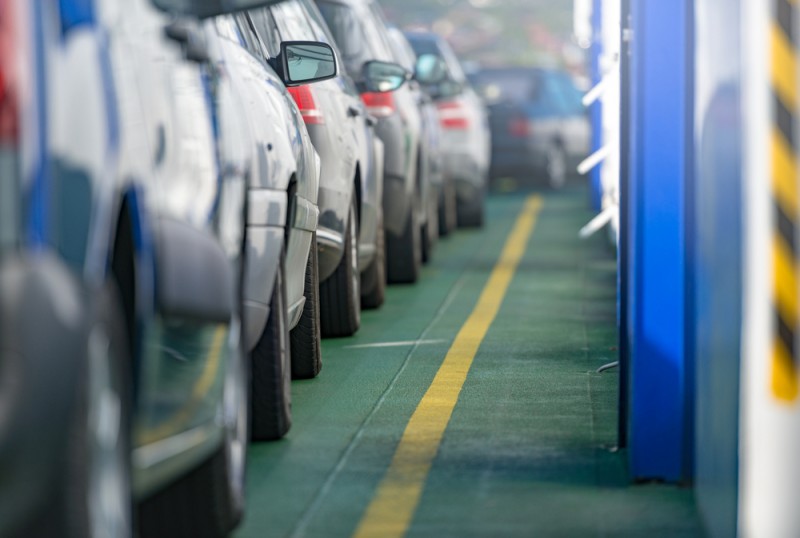ARCHIVED - Morocco suspends annual Paso del Estrecho co-ordinated crossing between Spain to Morocco
Those making the journey between Europe and Morocco normally cross principally from Algeciras, Tarifa and Almería in the Andalusia region

For the second consecutive year the Moroccan authorities have taken the decision to exclude Spanish ports from the sea crossings that habitually take place during what is referred to as “Operación Paso del Estrecho” or the “Operación Marhaba” in Morocco.
This “operation crossing the straits” is a co-ordinated operation run by both the Spanish and Moroccan governments to cope with the mass migration of emigrants and holidaymakers crossing from Europe into Morocco for holidays and returning to their country of origin to visit family and friends.
It began in 1986, after Algeciras was frequently brought to a complete standstill by the thousands of returning emigrants all attempting to cross to Morocco at peak holiday times; the port would be absolutely overwhelmed, with people queueing for several days and blocking up all entrances to the port and surrounding roads trying to get a ferry.
The port is only capable of processing 22,000 passengers a day and on occasions there would be 3km long queues with an estimated 50,000 people waiting in a queue at any given time.
In total, more than 3.3 million travellers and 75,000 vehicles will make the crossing every year.
The co-ordinated response was set-up to control the passenger flow and expand the capacity of the ports at peak times, the result being a much smoother flow of traffic from Spain.
However, last summer, the Moroccan government suspended the operation, closed its borders to traffic from Spain and suspended transit between the two countries due to the Covid crisis.
The Moroccan government has suspended the operation again this year, blaming the contagions situation in Spain, and taking advantage of the fact that the British Government also discourages its citizens from travelling to Spain as it is considered an unsafe destination.
A Moroccan government statement issued on Sunday afternoon specified that the return of migrants or any tourist travelling by boat will be made exclusively "from the same transit ports as last year," which effectively means that only vessels departing from the French ports of Marseille and Sète, as well as the Italian port of Genoa will be permitted entry to Morocco.
Passengers will have to present a PCR test before boarding and carry out another one on board, according to the statement, which means that there will be some type of infrastructure within each ship, almost certainly rapid test kits.
The news is a blow for the emigrants who cross Spain every summer, from different European countries, and normally board ferries from ports in the south of the peninsula (Algeciras, Tarifa and Almería, mainly) to the north of Morocco.
In a normal summer, the arrival of Moroccans residing abroad (MRE) involves the transit of several million people through ports and (to a lesser extent) airports.
In theory, immigrants or tourists from Spain will still be able to enter Morocco by air, since Rabat also announced the resumption of flights from almost all European destinations, including Spain, on June 15, so tourists will still be able to visit the country should they wish to do so.
But the limitations on vessels arriving and the limited number of spaces on flights will reduce the total number of those able to enter Morocco to less than one million this summer, and the ferry transport services from the French and Italian ports, will only be handle a maximum of 250,000 people, that is, one-tenth of those who normally travel by ship in a normal year.
It has not escaped the notice of the Spanish media that the decision has been taken in the midst of a diplomatic storm between Spain and Morocco in recent weeks, which has highlighted a long-standing dispute over control of the Western Sahara, a former Spanish colony to which Morocco lays claim.
Initially it was thought that the immediate catalyst which caused the diplomatic tension was Spain offering medical treatment to Brahim Ghali, the leader of the Polisario Front, a group representing the Sahrawi people which aims to take control of the Western Sahara, and who was treated in Spain. He has now left hospital and in theory, this should have diffused the situation.
But now the Moroccans state that Brahim Ghali is “just one man”, and that the grievances of the north African nation are instead connected to Spain’s refusal to support the full annexation of Western Sahara by Morocco. In December last year Donald Trump announced that the USA would be prepared to recognize Moroccan sovereignty over the territory despite the UN describing it as a “dependency of Spain”, thus becoming the first western leader to adopt such a stance (although he did so in exchange for Morocco normalizing its diplomatic relations with Israel).
Spain withdrew from Western Sahara in 1975 and the area has been the largest on the UN’s list of non-self-governing-territories since the 1960s. Control is disputed by the Kingdom of Morocco and the Polisario Front independence movement with its Sahrawi Arab Democratic Republic (SADR) government, while the Mauritanians also stake a claim.
Polisario has gained formal recognition for the SADR from 81 states while Morocco’s rights are recognized by the Arab League, but in both cases during the last 20 years recognition has been awarded and withdrawn on numerous occasions.
Image: Ferry crossing. Spain Today Online stock archive.























